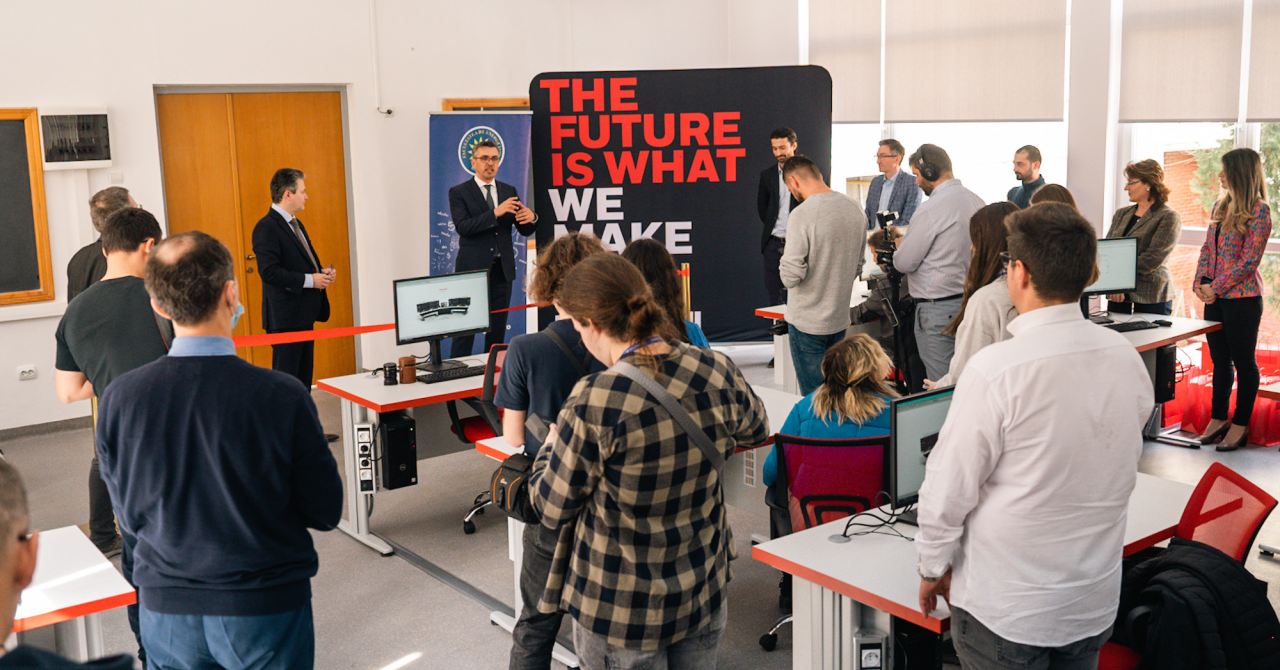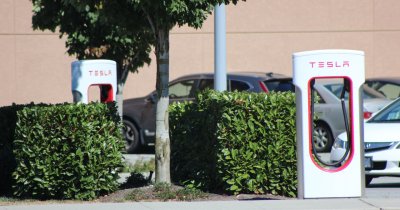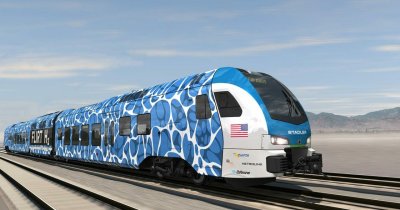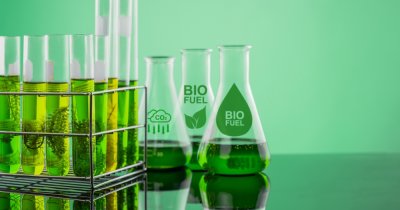The purchase of new next-generation laboratory was possible due to the collaboration between the university and Honeywell Romania, and the purpose of the investment is experimenting a learning the way renewable power sources operate.
To learn more about what the wind power module is and how it operates, we had a chat with Carmen Safta, a teacher specialized in wind power at the Polytechnics University.
Simulating a wind turbine
"The wind is simulated through an electric motor, the rotating speed increases and so does the "power of the wind". The electric motor outputs exactly what the mechanical part of the wind turbine will: a moment and a revolution."
These, the teacher told us, act as power mechanisms for the generator.

The interesting part of this device, according to her, is that not only the turbine is being simulated, but also the consumers.
Thus, depending on the "power of the wind", students will be able to power different consumers with more or less electrical power. Among these consumers we have a battery, which simulates how fast the energy generated with the help of the turbines is being stored, but also different consumers working on alternative or direct current.
Thus, the system that simulates wind power, just like the one that simulates solar power, can be adapted depending on the consumption needs that have to be satisfied.
Depending on the informational basis obtained with the help of the two devices, students can extrapolate the data to apply it to different scenarios of using electricity.
So, the teacher specialized in wind power told us that "using the data obtained here, you can create different scenarios, these are future developments that we want to make and everyone wants to use the basic information and to develop it further."
At the same time, Carmen Safta told us that the price of each of the two renewable energy simulators was almost 50.000 euros.
Different scenarios of solar energy production
One of the officials from Honeywell Romania showcased how the solar generating system works.
"On a photovoltaic cell level, we have this panel which is illuminated with the help of a lamp and that is connected to a battery to store energy. We can see the effect of temperature on the panel, but also how shadows affect energy production capacity", we were told.

The intensity of the light can be adjusted from the lamp, which lowers or increases the temperature and shadowing the panel can also be done mechanically, so that we can observe how energy production is affected.
A fan also simulates wind blowing in the panels, which means that it can act like a cooling device for them, which means that solar production can be increased and the installation won't overheat.
Similar to the wind power simulator, the one that demonstrates solar production is also connected to a battery to simulate how fast a battery is charged through different power uses. At the same time, consumers that work on alternative or direct current are present and they have the role to showcase a certain energy requirement, which can be hit by adjusting the power of the lamp.
The new laboratory from the Faculty of Energy can be used by various students, but also by curious people that maybe want to follow a new profession in renewable energy.

This is Honeywell's seventh university-class laboratory opened in Romanian universities. To this day, Honeywell opened four such laboratories throughout the Polytechnics University in Bucharest, while three others are operated by the Technical University of Constructions in Bucharest, The Polytechnics University in Timișoara and the University of Gases and Oil in Ploiești.
Mihai Brană, Managing Director at Honeywell Romania, said that "I hope that the students at the Faculty of Energy will find in this lab all the resources they need to build a solid career in the renewable energy sector."
Mihnea Costoiu, rector of the Polytechnics University in Bucharest, added that "Romania has a transitional energy industry and a big part of our objective, as a university, is to teach future specialists that can help develop this industry."
"The lab will be offering an experience which will definitely increase the opportunities in career development", he added.
 Mihai - Cristian Ioniță
Mihai - Cristian Ioniță












Any thoughts?